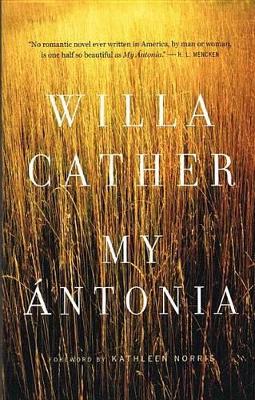Reviewed by gmcgregor on
There's not much of a traditional story structure here. It's presented as an adult Jim's recollections of his friend, so it takes a loose and kind of winding way of presenting its narrative. I didn't take much issue with that, since the book is pretty short, honestly, and not super textually rich so it's not like it gets bogged down for the lack of standard-issue "rising action". Where I found myself losing interest was in the last third or so of the book, in which the lively Antonia largely vanishes and we're left mostly with Jim, who is pretty boring and whose straightforward path doesn't have any real tension. We see the world of the novel through Jim's eyes, but it's Antonia who gives it its animating force. I'd argue that Cather's strength isn't so much her prose, which didn't do much for me, but her characterizations. She imbues even relatively minor characters, like Otto the hired farmhand, or Antonia's mother, or fellow young immigrant woman Lena, with a verve that makes them memorable. Too bad she couldn't do the same for her ostensible main character.
I will say that I'm glad this book was something I read as an adult instead of in high school. Teenage me would have HATED it because it's kind of boring, and while adult me would agree on the boring part, I was able to bring more life experience to bear that improved the reading of it, for me. I'm able to appreciate the way a significant friendship can loom large in your nostalgic reflections of childhood, and the hesitancy you can feel about reaching out even when you really want to reconnect. And one thing I did really enjoy and think still is criminally underrepresented in literature is the depiction of a genuine mixed gender friendship. As someone who's had strong, completely nonromantic friendships with men that I've really cherished, I feel like so often you only see those depicted as part of a family relationship or one of the two parties is gay, like there has to be some obstacle to "explain" why a man and a woman who enjoy spending time with each other would not want to sleep together. To see an actual friendship between a boy and a girl depicted as just that, in a novel published literally a century ago, is refreshing.
Reading updates
- Started reading
- 4 July, 2017: Finished reading
- 4 July, 2017: Reviewed
